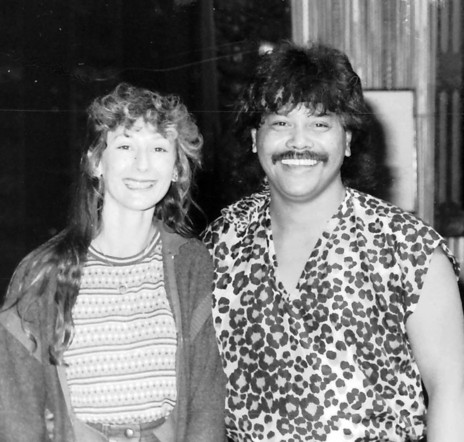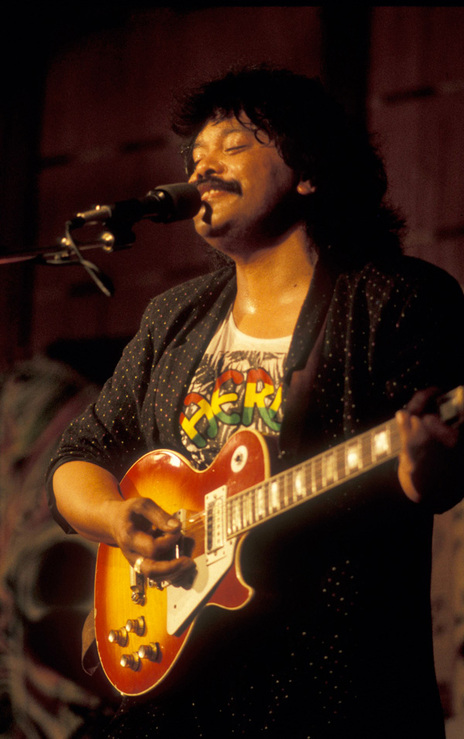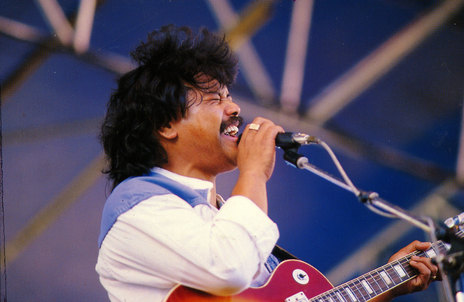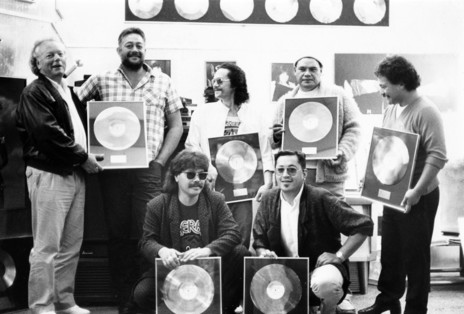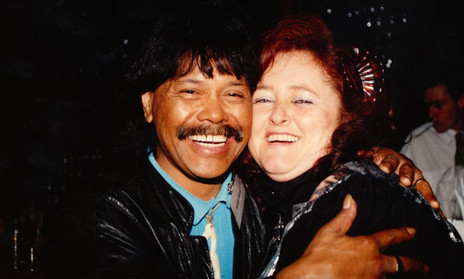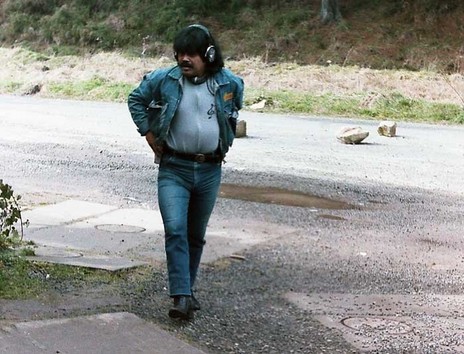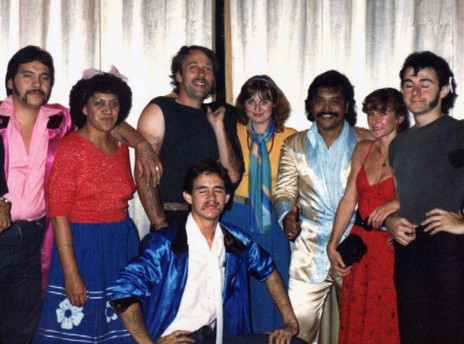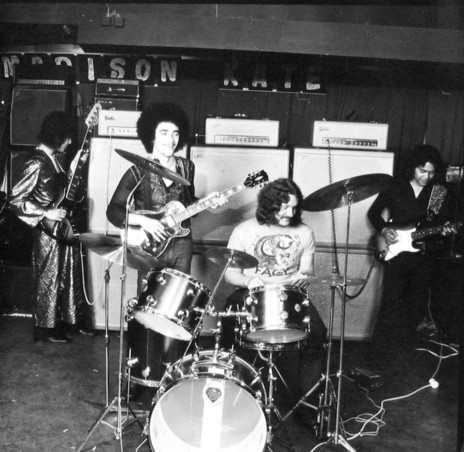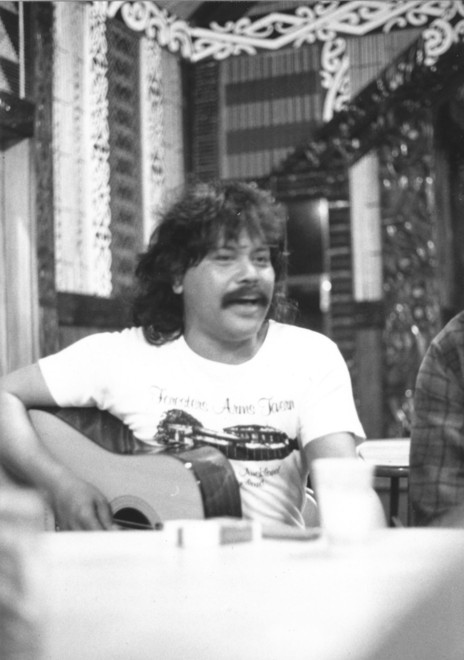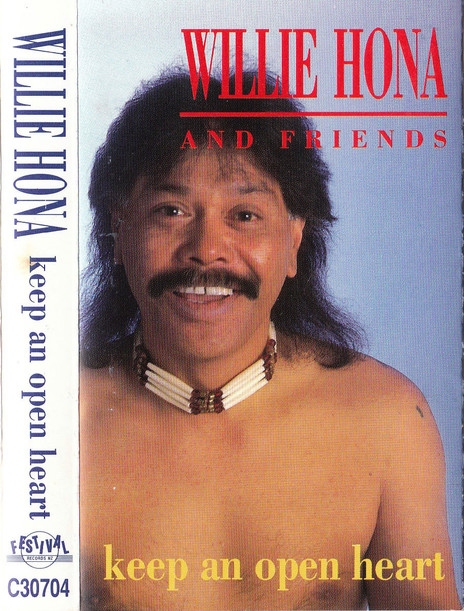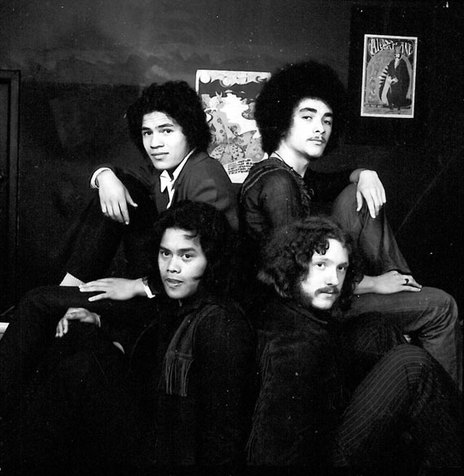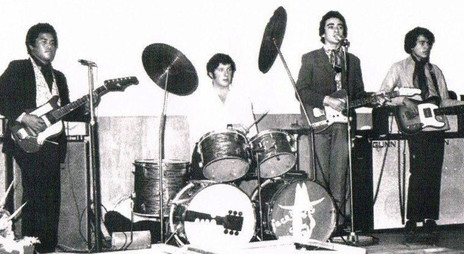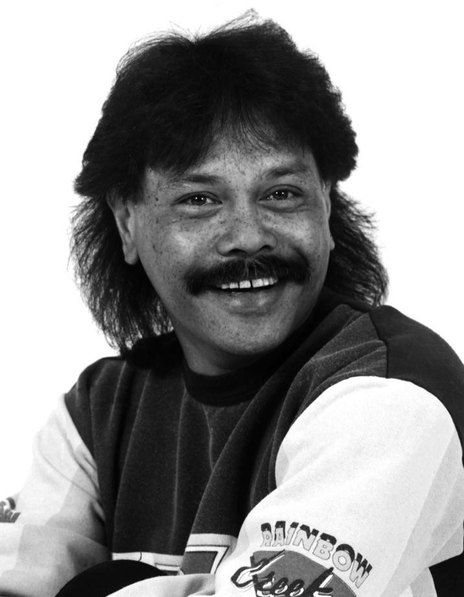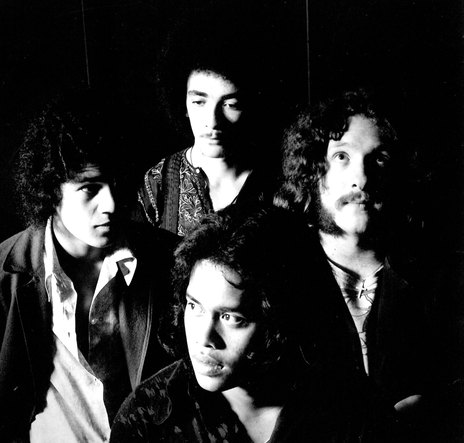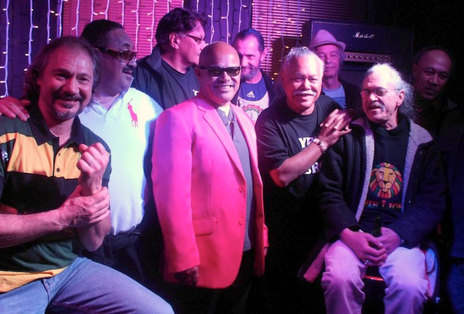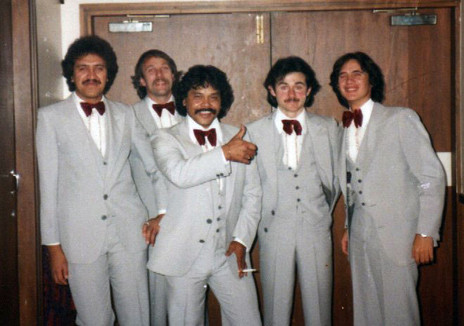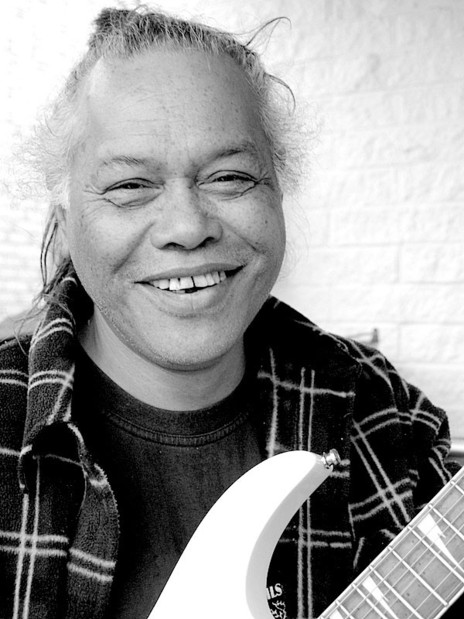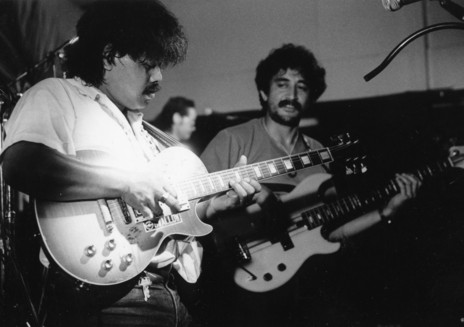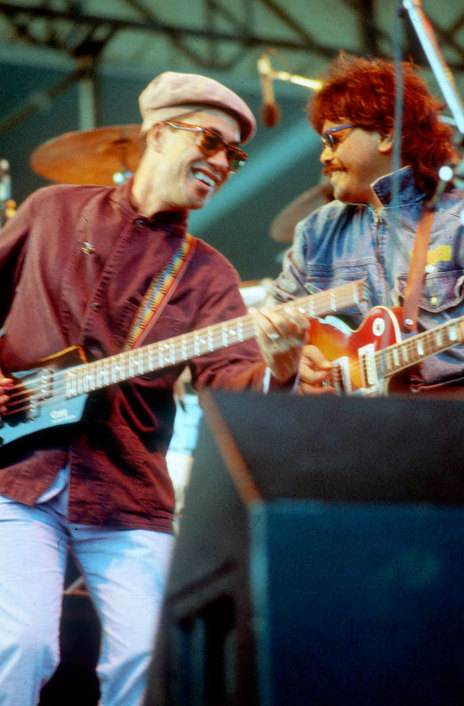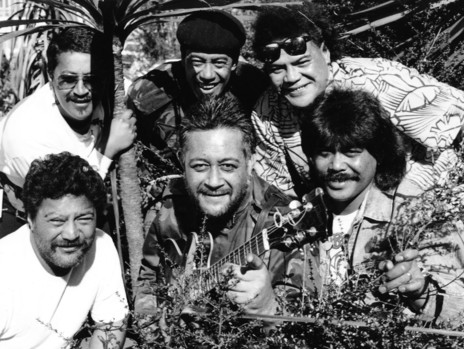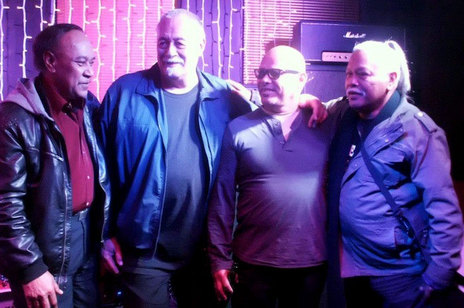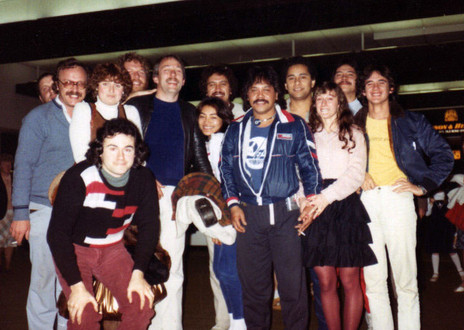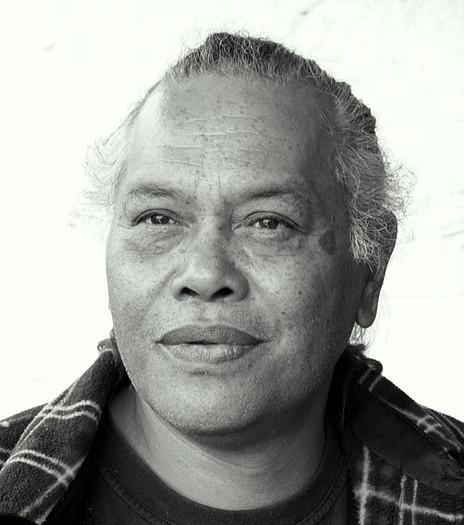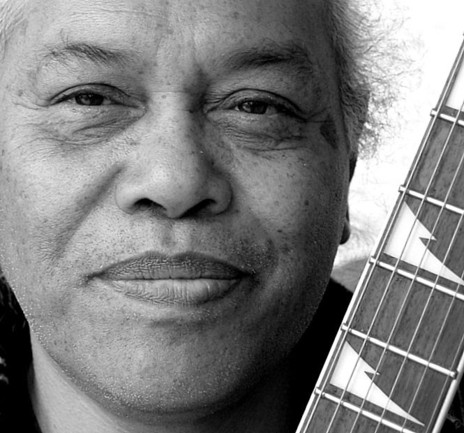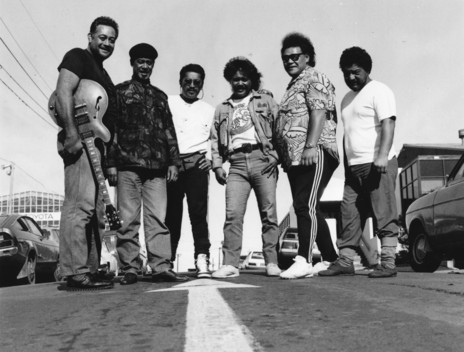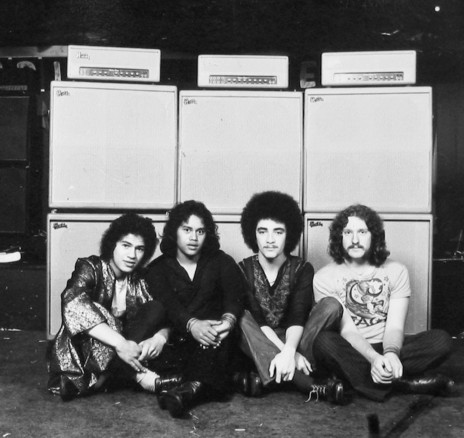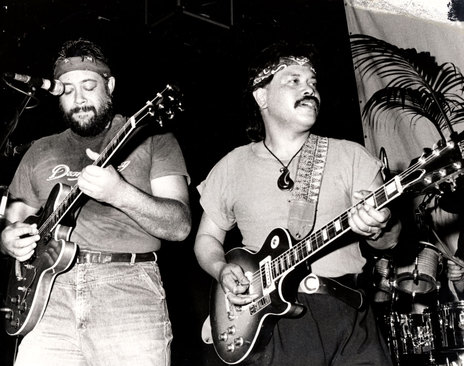In 2012, Hona was inducted into the New Zealand Music Hall of Fame as part of Herbs, but he believes the band missed a golden opportunity to organise reunion shows up and down the country that could have brought them all financial security as they headed into their 60s, as well as helping out the families of deceased members Fred Faleauto and Charlie Tumahai.
“We would have come out with fifty grand each,” he declared to AudioCulture. “But no, nobody got anything together. I could have brought all that money back to everybody. I wanted to start up a trust for the ones that have gone – for Charlie’s family, for Freddie’s family. Man, the best drummer I ever played with was Freddie. You listen to all those albums and you tell me if there are any two songs that sound the same with Freddie. I’ll tell you right now, no. He was a beautiful drummer.”
Hona was critical of former bandmates who continued as trio Herbs Unplugged and opened for UB40 in Rotorua in January 2016, but he said he was willing to be involved in a final hurrah similar to that of another of New Zealand’s iconic bands.
“I take my hat off to Split Enz,” he said. “They stopped, cool, but when it came time to do the money thing again, they re-formed to do it, so everybody got their share. And the people out there were happy. Not three guys going, ‘Oh, yeah, we used to be Split Enz.’ That’s what hurts me. Right to this day, it still hurts me. I could be up there doing so much for these guys. We all could be doing so much.
“If they want to be monetarily supported, that’s their wagon! But the real wagon, not the three-piece – the seven-piece, whatever the seven-piece waka is. Charlie’s not here, but Toni is still here. Imagine that show – Willie Hona, Toni Fonoti up front. Bring back the old and bring back the new. I love my brother Charlie and I miss him as well. I said to him over his coffin I’d get this thing up and running if it takes me to the end of my life.”
After leaving Herbs at the end of 1988, Hona toured under his own steam and released the album Keep An Open Heart, recorded at home with former and then current Herbs players and in California with members of west coast country rock bands The Rowan Brothers and Commander Cody and His Lost Planet Airmen.
Since 1996 he has made his home in Australia, working nonstop as a solo artist, in duos or with pickup bands, firstly on the Whitsunday Coast, Queensland, and then in Northern New South Wales.
It’s a long way from the Northland town of Rawene, where Willie Hona was born on 22 July 1953. His mother played piano and the family would often sing along to standards like ‘Roll Out The Barrel’. Hona was left-handed, so when his sister left home he reversed the strings on her guitar to suit but made no headway with the instrument.
When he discovered his school friends had right-handed guitars he had more luck learning to play right-handed from the age of seven. Later he played lead guitar in his own instrumental band The Vibrations with mates Eru Wano (bass), Boyda Wikaira (drums), Aporo Pomare (guitar) and Garth Kahi (guitar).
“I learned all The Shadows’ stuff, Chet Atkins, The String-A-Longs and Peter Posa,” Hona said. “That was another guy I loved, Peter Posa. Then we started doing ‘A Hard Day’s Night’, and all that started coming in. The Beatles were happening back then.”
Hona’s guitar was made out of an old desktop with the neck of an Antoria guitar.
The Vibrations made their own microphone stands out of dowel and their teacher, Mr O’Reilly, assembled their PA system from an old tape recorder. Formerly with the Irish Navy, O’Reilly was an electronics wizard who fixed all the televisions and electrical gear in Rawene.
Hona’s guitar was made out of an old desktop with the neck of an Antoria guitar. “To this day, I swear that was still my best guitar,” Hona lamented. “I could do all the Hendrix stuff on it and it would feed back when I wanted it to. And my fuzz box back in those days was two tape recorders connected together overrunning. But I don’t know what happened to all that stuff.”
As well as playing with The Vibrations, Hona would perform in bands with his uncles and was also part of a group in neighbouring Ōmanaia. When he was 14 the family moved south to Dargaville and Hona attended Dargaville High School. “I’d just come down from Rawene a lost and lonely boy,” Hona laughed, “and a couple of weeks at school and people would go, ‘Oh, that Māori fulla can play guitar.’”
There he met bass guitarist Mack Tane, singer and rhythm guitarist Mark Williams and drummer Gregg Findlay and they formed The Face. Eventually the band played the Yugoslav Hall in Dargaville every Friday night and ventured further afield in Wally Tane’s van to Paihia, Whangārei, Kaikohe, Turiwiri, Opononi and even Kaitaia.
In 1971, The Face won the North Auckland Battle of the Bands and early the next year they placed third in the national final in Auckland. Promoter Lew Pryme was a judge in the competition and took the band under his wing. He soon had them touring with the likes of Suzanne Lynch, Rob Guest and Bunny Walters.
They recorded a cover of Edgar Winter Band’s ‘Hangin’ Around’ b/w Williams’ own ‘Mr Postman’, which was produced by Dave Russell and Ray Columbus and released on Zodiac in 1973. The single was credited to Face (featuring Mark Williams) before Pryme persuaded Williams to leave the band for a solo career that began to soar as a result of his appearances on the NZBC television show Free Ride.
Willie Hona returned to Dargaville and decided he’d better get a real job. It only took six months as a plumber for him to realise he’d made a mistake and he set out to Auckland to concentrate on music. He hooked up with second guitarist Kit Panting, who had arrived in Auckland from Palmerston North with Straite in 1974.
They started The Hona Band and advertised for musicians. Keyboardist Ernie Semu and bass guitarist Steve Grant, both in their late teens, turned up to audition. “We said, ‘Oh, what do you guys know?’ They started playing Boz Scaggs. Wow, we weren’t even doing Boz Scaggs! Then they started doing Weather Report. Kit and I are sitting there going, ‘What the hell’s this stuff, man?’ So they joined the band.”
The Hona Band became busy on the nightclub circuit performing Top 40 covers and rock standards and were resident at the Peppermill underneath Trillo’s at the bottom of Queen Street. Others to pass through the band included bass player Nelson Chase, keyboard player Ben Gilgen, drummer Greg McCunn and singer Sharon Sauni.
Hona entered the short-lived Crystal Sound studio underneath the Crystal Palace picture theatre in Mt Eden Road in 1983 to record the single ‘She Needs You’ b/w ‘Rocking Down’, both written by Hona and produced by John Heath. The 45 was released through WEA.
In the middle of that year, he got a call from Polynesian Panthers co-founder and now Herbs manager Will ’Ilolahia. Herbs had found critical acclaim with their debut record What’s Be Happen? and chart action with their single ‘French Letter’ but had lost their main songwriter Toni Fonoti. Following a South Island tour other founding members guitarists Spencer Fusimalohi and Dilworth Karaka as well as saxophonist Maurice Watene were leaving too.
’Ilolahia remembered Hona from a Polynesian Panthers street party The Face had played in Ponsonby. Herbs had commitments in Polynesia in August and Hong Kong in October and ’Ilolahia was desperate for Hona to come in as the band’s frontman, singer and guitarist alongside founding drummer Fred Faleauto, bass guitarist Jack Allen and later recruits, keyboardist Tama Lundon and percussionist Carl Perkins.
Hona found his closest musical ally in Lundon and the two began writing songs together as well as gigging with a drum machine.
Despite early misgivings about the band’s strong political viewpoint and Pacific Island feel, Hona took up the challenge. Dilworth Karaka returned to the fold within weeks and Maurice Watene followed some months later, but Hona found his closest musical ally in Lundon and the two began writing songs together as well as gigging with a drum machine.
“We were writing songs and the only way we could get them happening, really, was to have a duo together and put them down in the pub, you know, sing them in the Henderson pub and just see how the people would react to them,” Hona said. “Then we’d take them back to the band.” They presented Herbs with ‘Long Ago’ and ‘Nuclear Waste’ – songs that would spearhead the next album and become staples in their live set.
“‘Long Ago’ is a country song. I wrote that about my mum and things that happened long ago with my mum, really,” Hona said. “Then they wanted a nuclear song to follow up ‘French Letter’. I came up with ‘Nuclear Waste’ with my brother-in-law (Rob Van de Lisdonk), but I wanted to write it in a happy sense. People are up there dancing, dancing and then they listen to the words – ‘Nuclear waste is coming down? Whoa, what the hell is this shit?’ That was the idea of it. It was my answer to ‘French Letter’.”
The release of the Long Ago LP at the end of 1984 was Hona’s introduction to new manager Hugh Lynn and Herbs’ creative allocation of songwriting credits where members’ names were put on songs they had no part in writing. The idea was to ensure everybody got part of the royalty pie. Hona was all for bandmates getting a share as far as a percentage of the song but not to the extent of having their name on it.
“It was so the band was covered,” Hona said. “But if we’re brothers, we’re covered anyway! If you’re there making coffee, you can’t be the songwriter; you can’t be part of that. And that’s what I tried to explain, but, you know, ‘You might get more than us.’ I said, ‘I don’t wanna get more than you. This is the deal, we write songs and we all get shares.’ ‘Oh, yeah, but you’ve gotta write your name.’”
A case in point was the ballad ‘In The Ghetto’ from Long Ago. Toni Fonoti counts it as the first song he wrote, with the aid of Tigi Ness and Danny Wilson, but the album credits had the writers as Lundon and Wilson while performing rights organisation APRA had two registered works for the title – one with Lundon and Fonoti as the writers, the other with Unity Pacific members Ness, Teina Winau, Robert Halcrow, David Parry and Steven Keys. All four were the same song.
It was a sentiment echoed by one-time Herbs percussionist Carl Perkins who had long been vocal about not receiving credits on songs he claimed to have contributed to during his time with the band, including ‘Sensitive To A Smile’ and ‘Jah Knows’. The latter had separate APRA registrations with the writers as Hona and Dilworth Karaka (as on the Sensitive To A Smile LP) for one and Perkins for the other.
While on tour after the release of Long Ago, Herbs became familiar with San Francisco native and poet Todd Casella, who had been spending his time between Gisborne and the US since the early 1970s. Casella was a big fan of the band and offered his poems up as potential lyrics. Two of them would go on to be their biggest singles, ‘Listen’ and ‘Sensitive To A Smile’.
“Todd wrote the words to ‘Listen’ as a poem and he said, ‘Willie, could you put a melody to this?’ Within that week we were back down in Gisborne and we did a demo of that song. He loved it.” Peaking at No.7, it was Herbs’ highest placing on the NZ chart outside of collaborations with Dave Dobbyn, Tim Finn and Annie Crummer.
But Casella’s contribution to ‘Sensitive To A Smile’ went unrecognised. When the album of the same name was released the song was credited to Dilworth Karaka and new bass guitarist Charlie Tumahai. It won Album of the Year and when Karaka and Tumahai won Songwriter of the Year and again failed to acknowledge Casella, the American was thrown out of the ceremony for causing a commotion. His name was finally added to the song for the release of Lights Of The Pacific: The Very Best of Herbs in 2008.
On the road in Australia in 1988 Herbs crossed paths with Joe Walsh, former Eagles guitarist and bona fide star in his own right. Walsh fell in love with the band, gave them some songs and offered to produce their next album. Herbs began demoing new material but things weren’t right with Willie Hona.
At the conclusion of the Australian sojourn it was the familiar story of huge crowds but little return to the seven band members after PA, production, transport and accommodation costs were taken out. During downtime Hona was playing solo in pubs just to support his family and pay his bills. The songwriting royalties were a mess and he couldn’t afford to stay in that environment.
“We had finished the tour and we were all trying to repair ourselves,” he said. “I had a bit of an upset. I didn’t pull out, but I wanted a rest from it and I’d just had enough. I was overloaded. Carl [Perkins] had the same thing happen to him, Jack [Allen] had the same thing happen to him, at a separate time to this. Hugh [Lynn] and Dilworth and them all went down to support Jack, but nobody came over to support me. I was really upset over that.
“But nobody ever fired me, I’d had enough by then. I was ready to kick up again in six months, but by then, no, they didn’t want me. We were brothers for five years, man, and then all of a sudden that happens. Had they thought a different way and had I been more approachable, I suppose, it might have been a lot different.”
Herbs announced the split after a show without him at Auckland’s Powerstation in December. “The ship wanted to go one way and Willie wanted to go the other,” Karaka told the Auckland Star. Hona later told the Sunday Star, “The ship wanted to follow Walsh – the golden apple. I didn’t. I knew the apple would fall.”
The next few years were spent touring solo or with a small band and writing songs. When he met up with Todd Casella again and played him some of his ideas, Casella supplied additional lyrics and financed an album, including a trip to California to record a song at Globe Studios in Mill Valley.
The sessions went so well that Hona returned to Auckland with five tracks in the can that utilised the backing of Californian country rockers The Rowan Brothers’ Lorin Rowan, latter-day Commander Cody and His Lost Planet Airmen sidemen Keith Crossan and Tim Eschliman and Native American percussionist Willie Lonewolf.
Back in Auckland, Hona settled in to complete the album at Airforce Studios with engineer Nigel Foster and former and current Herbs members Tama Lundon, Carl Perkins, Jack Allen and Gordon Joll. Two of the songs were Bob Dylan covers, but Hona and Casella wrote the majority.
Released on Festival in 1991, Keep An Open Heart wasn’t the success Hona was hoping for and he was back to taking whatever gigs he could, even a spot at his local Big Fresh supermarket. In 1996, he upped sticks and moved across the Tasman. For the first eight years he lived in Airlie Beach, on Queensland’s Whitsunday Coast, performing up to a dozen gigs a week, but since then has been in Iluka, New South Wales.
When Herbs were inducted into the New Zealand Music Hall of Fame in September 2012, Hona told TVNZ news show Te Karere that he was pretty blown out by the honour. “I’m not saying it’s gonna stop now,” he went on. “I think this is a continuation of a bigger thing.”
And it was Willie Hona, consummate frontman, who stepped forward at the conclusion of Dilworth Karaka’s touching acceptance speech to lead the contingent through an impromptu ‘E Papa’ – not unlike when he led Herbs back from the brink nearly 30 years earlier.
--
Willie Hona passed away on 5 May 2024.
